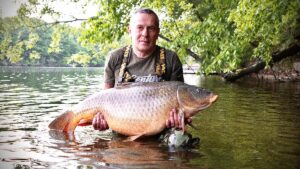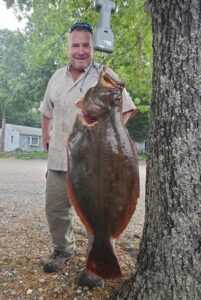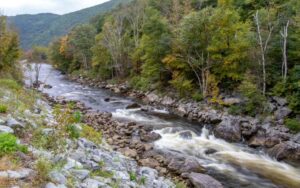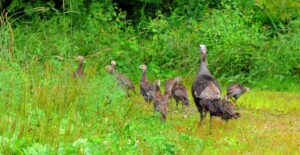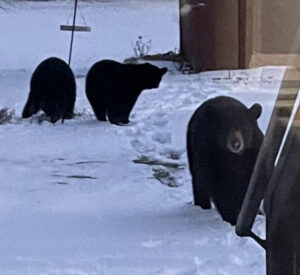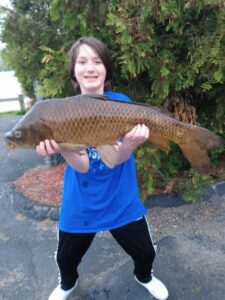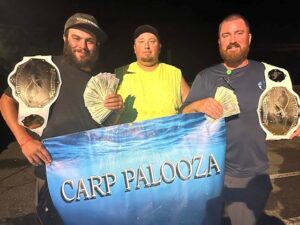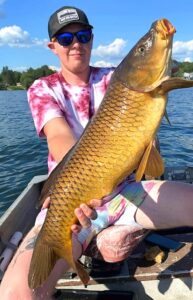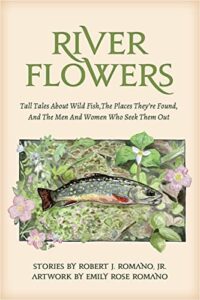The Berkshire Environmental Action Team (BEAT) invites you to join them at their Berkshire Green Drinks gathering with geologist Mark Brandriss to read the stories written in the rocks and landscapes of western Massachusetts. You will be taking a quick trip through a billion years of geologic events that shaped the Berkshires as we see them today, what created the mountains, ridges, and valleys of the Berkshires.
The in-person gathering takes place on Wednesday, July 12 beginning at 5:15 pm with the presentation and Zoom meeting starting at 6:00 pm.
It will take place at The Barn at Williams Inn, 103 Spring St, Williamstown. If the weather permits, the presentation will take place outdoors.
You must pre-register if you’d like to virtually attend this event: tinyurl.com/Berks-Green-Drinks-July2023. RSVP for the in-person gathering: Berks-Green-Drinks-July2023.eventbrite.com.
Brandriss is a geologist who recently retired after teaching at Smith College for 22 years. His specialty is the study of magmas and igneous rocks in the Earth’s crust, based on fieldwork in Greenland, Scotland, Alaska, and South Africa. But like any geologist, he’s also interested in the geology of wherever he happens to be — in this case, Williamstown, where he has lived for 27 years with his wife, Rónadh Cox, Professor of Geosciences at Williams College.
Berkshire Green Drinks is an informal gathering on the second Wednesday of the month. A guest speaker talks for about 30 minutes beginning at 6 pm, and the presentation is followed by a discussion and Q&A. These nights are free and open to everyone with any environmental interest. The drinks aren’t green but the conversations are. Everyone is welcome and encouraged to join and bring along questions.
Can’t make that gathering? Well on Saturday, July 15, from 10:00 am to 12:00 pm, you are invited to join BEAT for a guided naturalist walk in one of Pittsfield’s urban forests and conservation areas. You’ll observe some of the wonderful things you can find in nature during summer and talk about the area’s plants, animals, and natural history.
The guided walk will take place at Brattle Brook Park in Pittsfield. This conservation area exhibits a grassland-forest ecotone that provides quality habitat for wildlife. Walking conditions will be easy to moderate. The terrain will include forests with possible tree roots in the pathway and grassy meadows with some uneven terrain. Some areas might be a little soggy.
The number of participants is limited, so if you want to join them, email chelsey@thebeatnews.org. to RSVP. She will answer any questions you may have about the walk.
Angling news from Connecticut
Quite a few local anglers fish in Connecticut, especially our flyfishing community. Many like to flyfish the Housatonic River near Cornwall Bridge. During the summer months when many of our local rivers get too warm to flyfish without stressing the trout, flyfishermen fish the Farmington River near Riverton, CT. There the waters are much cooler thanks to the upstream bottom water releases of cold water from the dams of Colebrook Reservoir and Hogback Dam. Every now and then, I like to take a peek at what’s going on, fishing wise in Connecticut. These are some of the items mentioned in the July 2023 CT Department of Energy and Environmental Protection (DEEP) publication CT Fishin’ Tips.
“Rock Snot”, a descriptive name for a diatom (single cell algae) that makes a long stalk (billions combined make thick mats) is blooming (growing like crazy) in the West Branch of the Farmington River in Riverton, CT. Anglers fishing between Route 20 and the natural gas pipeline crossing are urged to clean and disinfect their waders after fishing in this section. Good methods are to completely dry for several days, freeze waders overnight, use a 10% bleach solution and then dry, or a highly concentrated salt solution and then dry. We don’t want anglers bringing this stuff into Massachusetts.
Other news from CT:
On May 27 of this year a Common Carp was caught which set a new CT state record. Robert Jagiello caught one weighing 45 lbs 1 oz, 32 5/8 inches long with a girth of 26 1/4 inches out of Lake Lillinonah. (Lake Lillinonah is a manmade lake located in
Fairfield, Litchfield and New Haven counties of Western Connecticut.) This fish takes down the 2012 record held by Mike Hudak, which was 43 pounds 12 ounces taken from the Connecticut River.
There was a new Bowfin Catch & Release CT state record set also. Benjamin Florian caught and released a 28.25-inch Bowfin from Crow Point Cove in Wethersfield, CT. This fish takes down the 2022 record held by Adam Chrzanowski, which was 28.25 inches from Pecausett Pond, Portland., CT.
And out of salt water came a new state record Fluke caught by Bill Proulx. It weighed in at 15.3 pounds, 32 5/8 inches long with a girth of 26 1/4 inches. It surpasses the previous record caught by Michael Maffucci of 14lb 13.76 oz and 31.5 inches back in 2019.
Housatonic River film produced by local students
The Housatonic River Association (HVA) is thrilled to share a short film by students from Reid Middle School in Pittsfield, MA. Entitled “The place beyond the mountains,” it highlights the history of the river, its uses, wildlife, and more. Students spent hours working on the film in an after-school program. HVA’s Alison Dixon, Berkshire Watershed Conservation Manager, also worked with students on the project.
Funded by The 21st Century Program, this lesson will be available for other schools across the country to use as a model for their own after-school programs.
Click onto the HVA website to see the film.
Silver haired local fly fishers have a high regard for Thom Smith
Say, did you read about Berkshire Eagle’s NatureWatch columnist Thom Smith’s recent retirement? (Berkshire Eagle Weekender issue of Saturday & Sunday, July 1-2, 2023 “An eye for nature”). After nearly 45 years of writing a column for the Eagle, he certainly has earned his retirement. The question is, are we ready for his retirement? After enjoying his weekly column all those years, it won’t be the same without it. I don’t know about you, but I have learned an awful lot about our local wildlife from his column.
I first met Thom in 1984 when he was Curator of the Berkshire Museum. He was instrumental in establishing an exhibit at the Berkshire Museum entitled Fly Tying, Fly Fishing, the gentle sport. Running from April 6 to May 13, 1984 it promoted flyfishing and conservation. Some 96 amateur fly tyers submitted flies for the exhibit and Kathryn Beebe arranged and mounted them. Some 17 of the tyers were members of the Taconic Chapter of Trout Unlimited, led by the then Chapter President Jerry Zink. Not everyone can boast having one of their flies exhibited in a museum.
Augmenting the flies was an exhibit promoting fly fishing and conservation. There were flyfishing films, presentations by famous flyfishing authors such as the late internationally known Helen Shaw who wrote two fly tying books (Fly-Tying: Materials, Tools, and Techniques and Flies for Fish and Fisherman: Wet Flies. She was named “the First Lady of Fly Tying”) her husband Hermann Kessler (writer and Art Director for Field & Stream magazine) and other notables such as Leon Chandler (VP of Cortland Line Co, past Trout Unlimited President, and Freshwater Hall of Fame recipient).
In the introduction to the exhibit, Kessler wrote, “Fly tying engrosses the mind, and involves the dexterity of fishing enthusiasts from all walks of life. Gathering in clubs and classes to exchange information, fly tyers bridge economic and social boundaries to develop fanciful deceivers and aquatic insect likeness. The Berkshire Museum has brought together the work of women, men, and children, to prove the point that amateur fly tyers are all working toward their concept of ultimate perfections. Their flies are presented here for your study, admiration, and enticement to go and do likewise.”
On behalf of the local fly tyers who are still around, many thanks to Thom, for establishing this “gentle sport” exhibit and bringing it to the attention of the public. That exhibit has not been forgotten after all these years.

